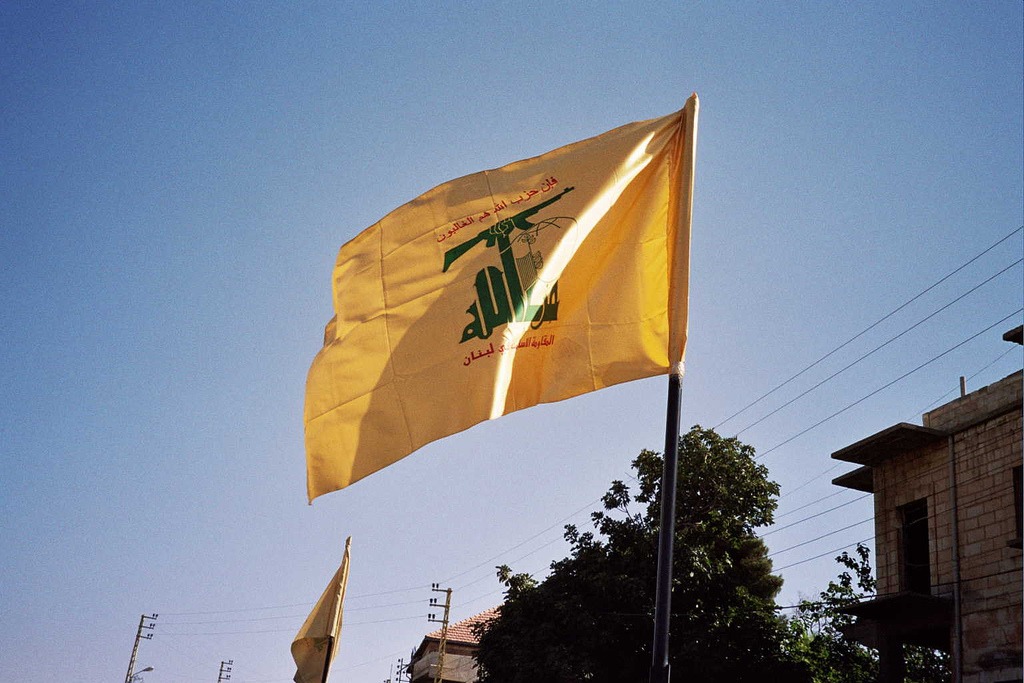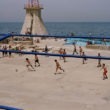Photo Credit: upyernoz
Beirut
On Valentine’s Day 2005, a suicide bomb blast close to Beirut’s seaside promenade killed billionaire former Lebanese Prime Minister Rafik Hariri, along with 21 others.
The crime was catapulted to the front lines of international jurisprudence, thanks to the diligent work of Lebanese political partisans and like-minded forces in the global community—who shared a less-than-thinly-veiled goal of sticking it to Syria and/or Syria’s Lebanese ally Hezbollah. The result: a Special Tribunal for Lebanon (STL), which operates in The Hague with United Nations backing. On trial are five Hezbollah members accused of orchestrating the bombing.
The selective nature of justice in this case is rather obvious given that Lebanon’s veritable glut of political assassinations over past decades has not produced any similar effort, even on the domestic level. As Lebanese criminal justice expert Dr. Omar Nashabe notes in a paper published by the American University of Beirut, assassinations and “numerous other serious crimes committed in Lebanon since 1975 have either gone unresolved, unpunished, or were white-washed by amnesty laws and international silence.”
And while apologists for the STL cast it as a precedent-setting move in the fight against impunity, the fact that the court has hosted testimony by Lebanese sectarian warlords-cum-politicians—themselves with the blood of Lebanon’s civil war still on their hands—would seem to nip that claim in the bud.
Nor have the tens of thousands of victims of regular Israeli rampages across the country been deemed special enough for a tribunal aimed at holding their murderers accountable. Never mind that the court, which advertises itself as “the first tribunal of its kind to deal with terrorism as a distinct crime,” defines terrorism in part as something “liable to create a public danger.”
In wantonly bombing Lebanese apartment buildings, family vehicles, and the like, Israel would seem to have terror down to an art.
Israel, it bears mentioning, has been categorically exempt from suspicion in the Hariri killing, despite its history of interference in Lebanese politics and the fact that it benefited mightily from the withdrawal of Syria from Lebanon—one outcome of the assassination.
Beyond its focus on “terrorism,” the STL is unique in other ways, as well. For one thing, it’s a trial in absentia, since none of the defendants has been delivered to the court. As former defense counsel member Philippe Larochelle recently explained to me, the best-case scenario for the prosecutors in the end is that “you get a conviction for five ghosts.”
In wantonly bombing Lebanese apartment buildings, family vehicles, and the like, Israel would seem to have terror down to an art.
Larochelle is also a veteran of the International Criminal Tribunal for Rwanda and the International Criminal Court; I met with him in Beirut prior to his resignation from his position at the STL. He described the Hariri court as the “Dubai or Qatar of tribunals,” alluding to the excessive quantities of money and resources being flung at the operation—a jackpot of sorts in the international tribunal industry.
As a New York Times Magazine article noted in February 2015, “roughly half a billion dollars” had already been spent by 28 different contributing countries, including the United States, on an investigation and trial that is nowhere near finished. According to Larochelle, the sheer expense raises the question of “to what extent” participants in the whole charade are “paid to validate a dubious process.”
Lebanon itself somehow manages to foot 49 percent of the bill despite being unable to adequately administer other services more useful to its general population, such as collecting garbage and providing electricity. The discrepancy in spending patterns becomes even more notably obscene when one considers that, in some areas of the country, the poverty rate exceeds 60 percent. There are also some two million Syrian refugees in Lebanon who presumably wouldn’t mind seeing their survival needs met.
As for the judicial process itself, the prosecution’s narrative is built on unproved techniques involving the analysis of a bazillion Lebanese mobile phone logs—with no regard for Israel’s proven ability to manipulate Lebanese telecommunications networks. Larochelle sums up the spectacle as one in which “the accused are phones.” The New York Times Magazine, however, is more optimistic.
Titled “The Hezbollah Connection,” the article is conveniently authored by Israeli military analyst Ronan Bergman, who delivers what is essentially a guilty verdict on Hezbollah even as he acknowledges that “the prosecution has produced no direct evidence” whatsoever. Apparently, in this case, the ends justify the means.
“For all the seeming absurdity of a murder trial in absentia,” Bergman writes, “the investigation and trial have succeeded in causing substantial damage to Hezbollah,” which he says has also seen its standing inside Lebanon “compromised by the allegations.”
And while Bergman contends that “one of the greatest challenges for the prosecutors and the defense lawyers alike is simply to show that justice is possible,” he and many others have already succeeded at what should be an even greater challenge: suggesting that perversely expensive “justice” wielded as a political weapon constitutes justice at all.
Belén Fernández writes frequently on the Middle East and is the author of The Imperial Messenger: Thomas Friedman at Work. This is the second of two dispatches from Beirut she has written for The Washington Spectator.







0 Comments